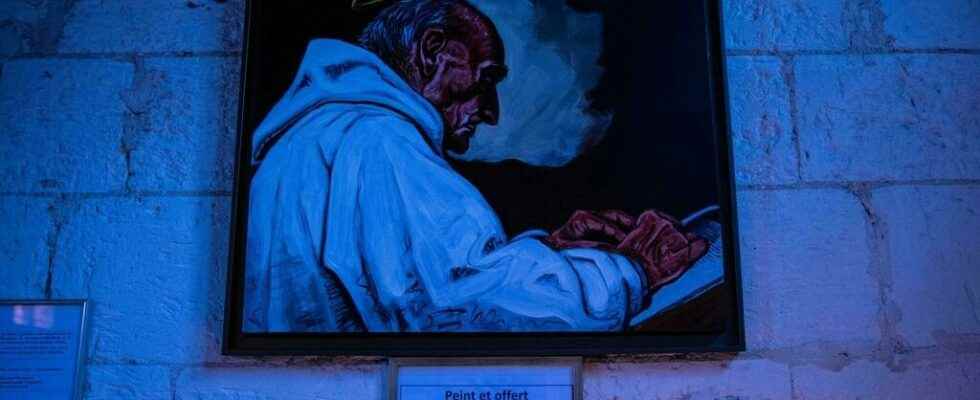The trial for the murder of Father Hamel in his church in Saint-Etienne-du-Rouvray in July 2016 is continuing before the special assize court in Paris. In the middle of the week, the president decided to hear in camera the testimony of two police officers who had intervened at the scene of the attack. An unprecedented and questioning decision.
In the absence of the deceased assailants and the alleged instigator, Rachid Kassim, probably dead in Iraq, the special assize court has been judging three members of their entourage since the beginning of the week. In the box of the accused, Jean-Philippe Jean Louis, Farid Khelil and Yassine Sebaihia appear for “terrorist association of criminals”.
The special assize court in Paris granted a closed session on Wednesday to the trial of the assassination of Father Hamel, for the testimony by videoconference of two police officers who had stormed during the attack in July 2016.
► Also to listen : Saint-Étienne-du-Rouvray, a town still marked by the 2016 attack
The court considered that “given the quality of the police officers” involved in “this case which has undergone significant media developments”, their testimony could be “of a nature to endanger their safety and that of their relatives”, explained President Franck Zientara.
The court therefore decided to “grant (their) request”, the president immediately bringing out the press and the public. The president had also ordered “the confidentiality of the identity of the two witnesses”, which means that their names will not be mentioned at the hearing. They must, however, testify openly, by videoconference from Rouen.
In camera means that only the court, the defendants and the civil parties are present in the courtroom. An “unprecedented and extremely serious decision with regard to the right to information”, protested on Twitter the association of the judicial press. Jean-Philippe Deniau, president of this association, explains at the microphone of Nathanaël Vittrant, from the Society department, how this initiative poses a problem. ” I’ve been doing lawsuits for over twenty years now. No, I’ve never seen that! The legitimate question facing the court was to ensure the safety of the two police officers who came to testify. There are very simple ways to do this, and that is to anonymize them. It is to allow them to intervene before the Court by videoconference, with a blurred face or a masked face… And this is completely legitimate.
” an obstacle to freedom of information »
On the other hand, not allowing the public and the journalists who come to transcribe the debates to attend what is said, only what is said and which is very important, is completely unprecedented and it is an obstacle freedom to inform. And obviously our fear is that what happened yesterday will happen again next week, when we will have to hear from the key witnesses in the investigation. I expect this not to happen again and especially that we reaffirm the principle of the publicity of the debates. A justice that does not come in public is an obscure justice »
Several lawyers for the civil parties also described as “regrettable” both the possibility of a closed session and the fact that the officials did not physically come to the special assize court.
At the trial of the bombing of #SaintEtienneDuRouvray, the court pronounces a closed session for the hearing of the investigators because of the risks incurred by the strong media coverage of the hearing. Unprecedented and extremely serious decision with regard to the right to information. @E_DupondM
– PresseJudiciaire (@PresseJu) February 16, 2022
(and with AFP)
► Read also : The trial of the assassination of Father Hamel in Saint-Étienne-du-Rouvray has opened
